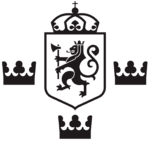Politics of Acrea
 |
|---|
| This article is part of a series on the politics and government of Acrea |
The Politics of Acrea are organised in the framework of a unitary constitutional monarchy. The central government is formally composed of a legislature and a judiciary, with the Chancellery acting as both the head of the legislature and the executive. Democratic process has a long history in Acrea dating back to the Acrean Empire. The vast expanse of the Acrean Empire and its diversity necessitated the existence of a forum in which local and provincial representatives could bring and debate issues not just pertaining to their constituency, but to debate the effect of Imperial law on their constituency.
The current constitutional monarchy, as opposed to the Imperial-era absolute rule, was established in 1215 with the signing of the Grand Compromise (Elder Nordic: Stórkostleg Málamiðlun) by King Ivar II. The compromise created the Riksdag to replace the Althing as Acrea's legislative body, and established legal restrictions on monarchial power.
A substantial number of political parties are represented in the Riksdag. Public participation in politics is moderately high, with voter turnout during national parliamentary elections historically being around 70%-75% since 2000.